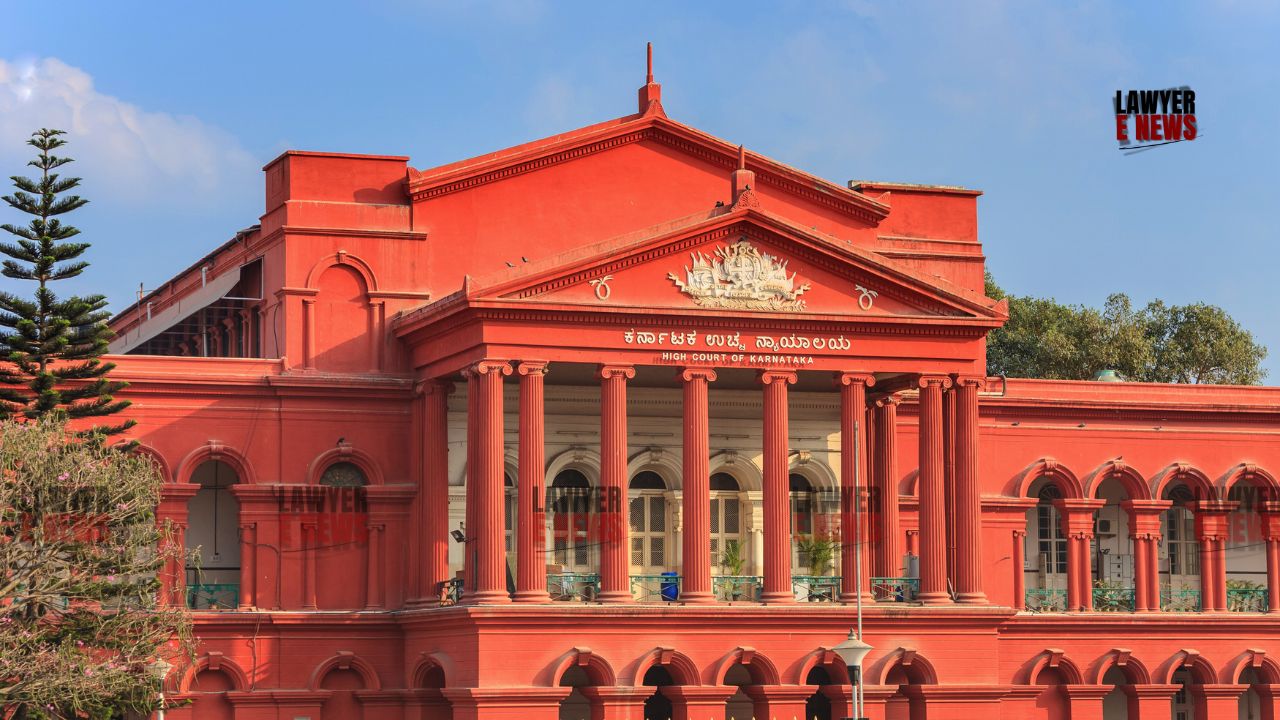-
by sayum
14 February 2026 2:22 PM



In a recent decision, the Karnataka High Court dismissed a petition seeking extensive document production in a case under Section 138 of the Negotiable Instruments Act, 1881. Justice M. Nagaprasanna emphasized that Section 91 of the CrPC cannot be used to permit a roving or fishing enquiry. The court partially upheld the order of the XI Additional Small Causes Judge and ACMM, Bengaluru, directing the production of specific documents for the year 2018 only.
The case involved M/s. Mahathru Technologies (petitioner/accused) and M/s. Creative Infotech (respondent/complainant). The dispute arose from transactions between the two parties, which led to the issuance of cheques by the petitioner. These cheques were dishonored with a “stop payment” endorsement. Consequently, the respondent initiated proceedings under Section 200 of the CrPC for offenses punishable under Section 138 of the Negotiable Instruments Act.
The petitioner sought the production of documents, specifically CRT/claims and invoices containing UDID numbers given to Apple Company for the period 2017-2020. This was intended to substantiate claims that the respondent had created fake invoices using previously sold laptops’ UDID numbers.
Justice M. Nagaprasanna noted that the documents requested by the petitioner for the years 2017, 2019, and 2020 were not relevant to the 2018 transaction in question. The court highlighted that the disputed cheques pertained to the year 2018, and therefore, documents from other years were unnecessary.
“The cheque is dishonoured in the year 2018. Repeated attempts are made by the petitioner initially by filing an application under Section 311 of the CrPC and the rejection of it having become final, is now wanting the invoices even between the period 2017 and 2020 to be produced, while the transaction pertains only to the year 2018,” the court observed.
The judgment reiterated that Section 91 of the CrPC should not be used for a roving enquiry. It referred to the High Court of Madras’ decision in B. Murugesan v. V. Vijaya Kumar, which emphasized that the power under Section 91 is not an absolute right and must be necessary for the purpose of trial.
“This provision cannot be invoked by an accused person against the complainant and force the complainant to produce certain documents before the Court. At the best the accused person can only put questions regarding the availability of the documents with the complainant and can make a request to the complainant to produce the documents,” the court noted, aligning with the Madras High Court’s interpretation.
The Karnataka High Court’s decision underscores the limitations of Section 91 of the CrPC, affirming that it cannot be used to embark on a broad, exploratory search for evidence. By restricting the document production to the year 2018, the court maintained a focused and relevant scope for the case at hand.
This judgment clarifies the application of Section 91 in cases under the Negotiable Instruments Act, particularly in cheque bounce disputes. It sets a precedent that prevents misuse of this provision for unwarranted document demands, ensuring that trials remain concise and pertinent to the issues at hand.
Date of Decision: 28th June, 2024
M/s. Mahathru Technologies v. M/s. Creative Infotech
